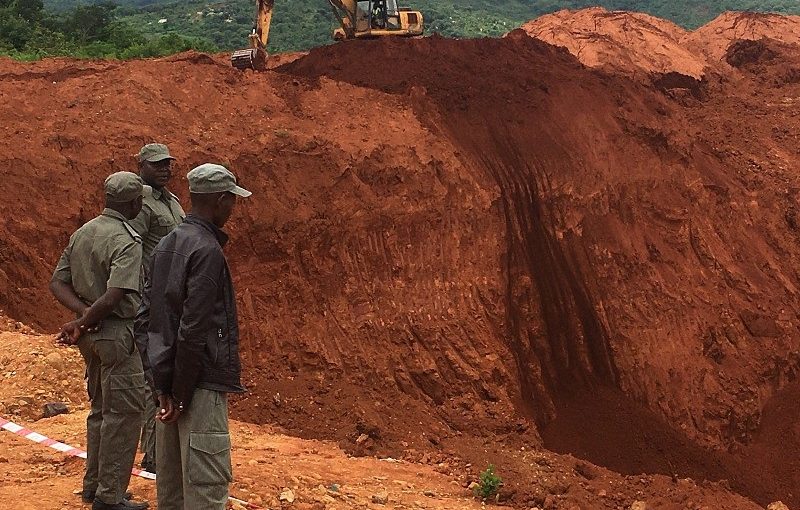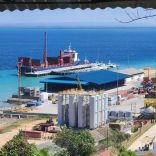Mozambique: Port of Pemba boosts Cabo Delgado's economy with graphite exports
Mozambique: Government accuses mining firms of falsifying production figures

FILE - For illustration purposes only. [File photo: Lusa]
The Mozambican government has accused mining companies of declaring less production than they actually produce in order to obtain “very low” taxes, demanding that the sector increase its tax contribution and participation in the development of the country and its communities.
The position of the Mozambican executive is contained in the summary of a meeting that members of the government recently held with representatives of companies in the mining sector.
In the document, to which Lusa had access ton Tuesday, the Mozambican authorities consider that “half of the exports that occur in Mozambique result from mining, however, this number of exports is not reflected in taxes, which are very low”.
At the meeting, government representatives relied on the latest report by the extractive industries transparency initiative (EITI), an international mechanism that measures transparency in the sector, to point out the disparities between the minerals produced and those declared, the disparity in sales prices between the different mining companies in Mozambique and the sales prices practised in the country with what is charged on the international market.
On the other hand, there are different models for declaring production and non-compliance with the Mining Law, the text reads.
The executive noted the need to study mechanisms for processing minerals produced in Mozambique, such as graphite, heavy sands and coal.
The processing of mineral products in the country would allow the creation of jobs and would contribute to industrialisation.
“In short, the government demands the valuation of all minerals produced in the country,” the document said.
At the meeting, those present defended the imperative for companies to increase their participation in the social and economic development of communities where mining activities take place, through the creation of jobs, construction of technical schools, water supply, as well as access roads.
For their part, the companies advocated the involvement of the Chamber of Mines in the development of regulatory instruments on the sector, the construction of infrastructure for the flow of production and the supply of stable and reliable energy to the industry.
They also advocated the need for greater coordination between the various government stakeholders for exports, with a view to avoiding contradictions in the interpretation of the rules governing the area.
The operators also called for an end to export restrictions caused by the absence of a reference price at the point of sale and purchase and for the submission of product quality tests to be required at the export stage rather than at the production stage.
Several internal and international reports have accused multinationals operating in Mozambique of declaring production figures below what they actually take out of the country.
Lusa has not yet been able to obtain a reaction from the Mozambique Chamber of Mines.













Leave a Reply
Be the First to Comment!
You must be logged in to post a comment.
You must be logged in to post a comment.